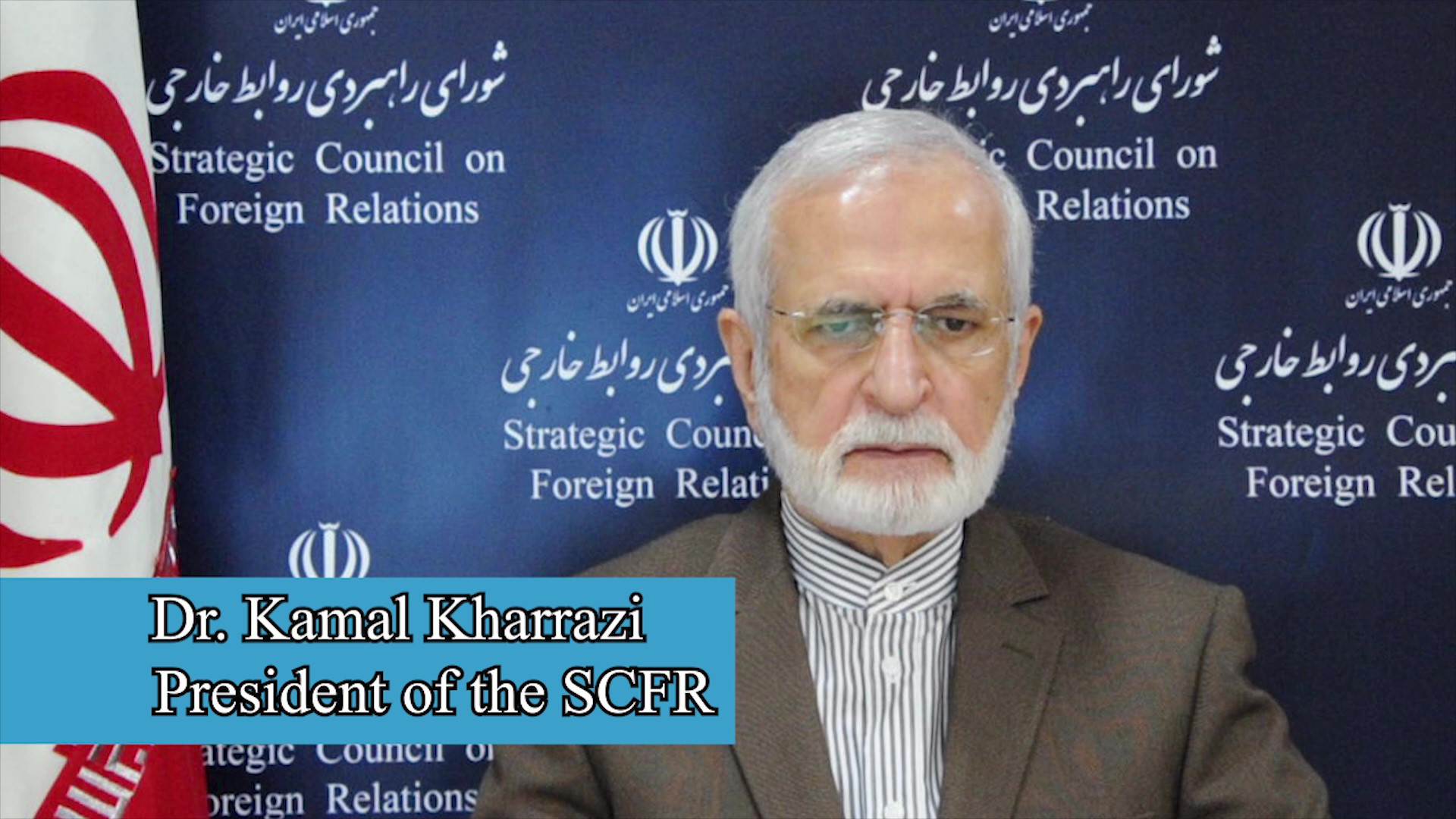Dr. Kamal Kharrazi Friday delivered an online speech at the International Conference of “30 Years of Independence: Leadership, Sustainable Development and Progress” in Kazakhstan, in which prominent international figures such as Ban Ki-moon former UN Secretary-General and Head of the Global Green Growth Institute; Abdullah Gul, former Turkish President; Jan Kubis, former Secretary-General of the Organization for Security and Cooperation in Europe (OSCE); and UN Special Envoy for Libya, Binali Yildirim; former Turkish Prime Minister; James Baker, former US Secretary of State; Gerhard Schroeder, former German Chancellor; and Kazakh officials also participated.
Congratulating Kazakhstan on the 30th anniversary of independence and conveying the message of friendship of the Iranian nation, he stated: Enforcement of some important strategies within the past three decades represent the wisdom, and responsibility of the government and honorable nation of Kazakhstan. These efforts have resulted in sustainable development, stability, economic progress, and good relations with others, based on mutual respect.
Noting that Iran was among the first countries that recognized the independence of the Republic of Kazakhstan and stressing that without any doubt because of the mutual will and immense capacity for cooperation in different fields, the two countries can pin hope in further strengthening relations and solidify the links between them, he stressed that some impediments particularly illegal primary sanctions of the United States against Iran and extraterritorial secondary sanctions of the U.S. against Iran’s trade partners have prevented us from exploiting all existing capacities. Therefore, it is necessary to continue meetings between the authorities of our two governments and relevant organizations to find appropriate ways and means to remove the obstacles and strengthen our cooperation.
Dr. Kharrazi cautioned that our region is witnessing various crises.
The SCFR chief described Palestine as the most critical issue in the Middle East and said: The only possible solution to this crisis, is holding a referendum with the participation of all original inhabitants of Palestine, including Muslims, Jews and Christians, and their refugees to determine their destiny.
Referring to the Syrian crisis and Kazakhstan’s positive role in helping to harbor the Astana Format to find a political solution, he said: We can witness a promising perspective of stability, security, and peace only if foreign forces who are illegally in Syria would withdraw, and the Government of Syria would exercise its full sovereignty over the country.
Dr. Kharrazi described the Yemeni crisis as a “costly” war that “during the past six and a half years” has now reached a critical stage. He added: Now is the time for the international community to stop the Yemeni siege, enforce a ceasefire, and expedite the delivery of food and medicine to put an end to sufferings of the Yemeni people. Undoubtedly, it is only through Yemeni-Yemeni talks that a representative government may be established in Yemen, and the Islamic Republic of Iran will spare no effort in supporting the Yemeni people in this respect.
On the defeat of the U.S. forces in Afghanistan after 18 years of occupation, and ultimately with their sudden withdrawal as well as that of their allies, Dr. Kharazi said a difficult situation has been developed which has paved the way for rising terrorism that can expose the whole region to danger.
Dr. Kharrazi added: The only solution to the crisis is the establishment of an inclusive government in Afghanistan with the collaboration of other countries especially the neighboring ones, in order to provide security and welfare for the Afghan people. In this respect, regional consultations would be necessary, and the meeting of foreign ministers of Afghanistan’s neighbors such as the one recently held in would be instrumental.
Dr. Kharrazi also called “fight against terrorism” another issue of utmost importance. He said: We believe that fighting against terrorism requires a common will and cooperation of all regional countries. The Islamic Republic of Iran expresses its full readiness and welcomes the cooperation of the regional countries in this respect.
Click for access full text of this speech
Watch the video of the speech by clicking this link.










0 Comments